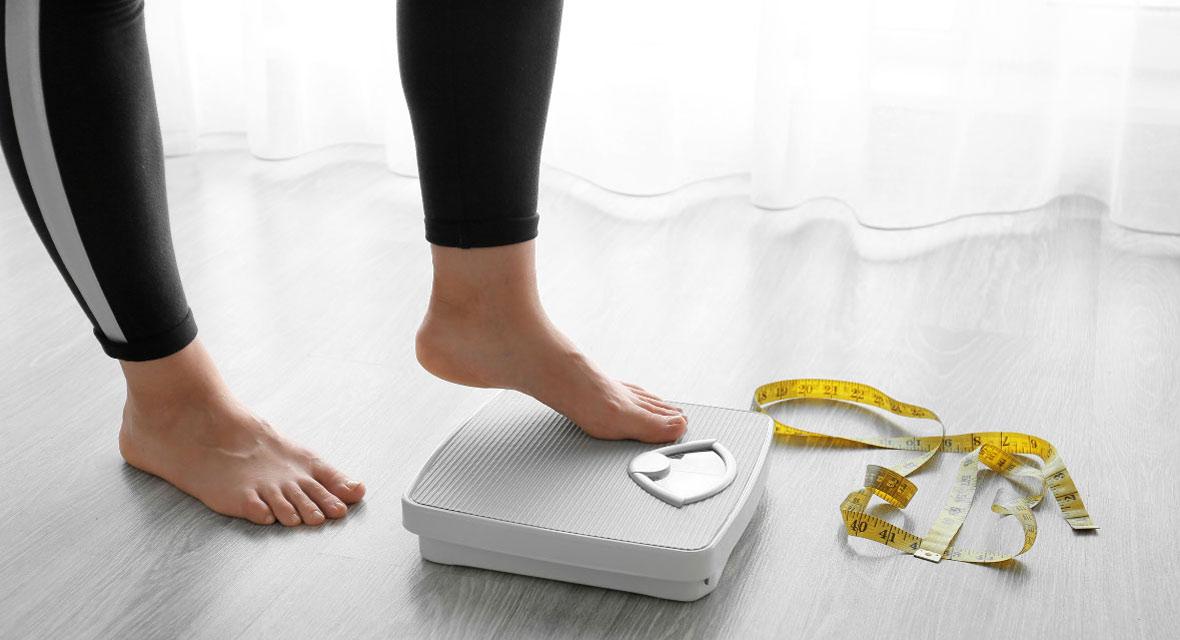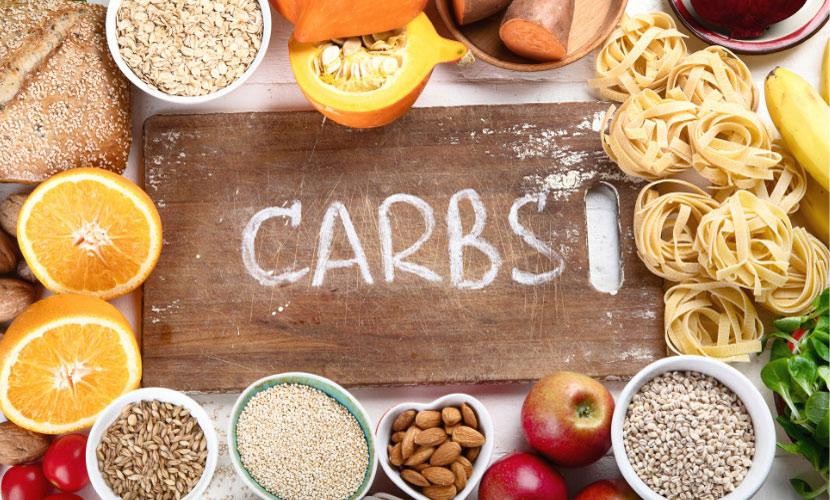🏆 As seen and loved on Shark Tank Dubai 🏆

9 Reasons For Daily Weight Fluctuation
Sneaky Offenders Recking Havoc and Causing Your Weight Fluctuations
People obsessed with checking their weight regularly must have noticed the number changes every time they step on the scale. A person's weight can indeed fluctuate daily, sometimes multiple times a day. There is nothing abnormal about daily weight fluctuations. Weight fluctuations simply mean that body weight increases and decreases over a given time. It can depend on several factors, but mostly it comes down to what you eat, drink and how much you sleep and exercise.
If you are currently going through a weight loss journey, the daily weight check might make you believe that weight fluctuations are due to fat loss or fat gain. Though it is possible, you can't rule out other factors that affect daily weight changes.
According to most endocrinologists, daily weight fluctuation of 1-2 kg is normal and does not ring any alarm bells. For weight watchers, even 1-2 kg can be a big swing. To a certain extent, you can control the fluctuating curve of your weekly weight graph by understanding the reasons behind it.
9 reasons for daily weight fluctuations
Most of the time, the reasons for weight fluctuations are obvious. It's either you indulged in a heavy meal or you did a sweaty workout. Other reasons that indirectly affect the fluctuations in weight are genetics, age, or gender. Below are the main reasons behind the weight fluctuations.
Water Retention
Water makes up 60-70% of your body weight. High water intake can contribute to short-term weight fluctuations. Excess water intake may build up in the body leading to bloating. Food high in salt and carbohydrates also cause your body to retain water. Extra water in your body shows on your scale.
Often water retention is induced due to excessive intake of sodium. Weight-watchers usually are very cautious about the overuse of the salt shaker. However, salt can hide secretly in cold cuts, frozen meals, sauces, and even diet foods. Store-bought salad dressing, canned soups, and veggies are typically high in salt. Several varieties of low-cal food are high in salt.
You can minimize water retention by eliminating processed food and sugary drinks from your meal. If you are looking to reduce weight or eat healthily, it is necessary you read labels or order food from a healthy meal plan delivery service, which can save money as well.
Adding potassium and magnesium-rich food to your diet is another way to balance out the high sodium levels.
Excessive intake of carbohydrates

Carbohydrates are the primary nutrient and go-to fuel for energy. The most common sources of carbs are bread, pasta, rice, and potatoes. Simply eating carbohydrates does not cause weight gain. However, too much of it can lead to extra kilos. According to dietary experts, for every gram of carbohydrate you consume, your body retains 3 ml of water.
The carbohydrates are stored in the form of glycogen in your body. Each gram of glycogen comes attached with 3 ml of water. Build-up water in your body caused by a high-carb diet can fluctuate your weighing scale.
Cutting down on carbs is the quickest way to use the glycogen stored in cells and shed that unexpected weight. An average adult requires 130 gms of carbohydrates to function. Replacing processed carbs with whole foods and high protein foods (lean meat, soy, eggs) can reduce cell water retention.
Bowel movement
How much can poop weigh? Can it be heavy enough to cause weight fluctuations? No significant fluctuations, but urine, stool, and undigested food can cause instability in weight.
According to a research study, an average adult may produce 125 to almost 170 gms of stool a day. However, other studies point out that even when your body releases stool, there is still digestible material in transit. With optimal gut transit, normal fecal transit takes around 40-60 hours. The transit time may increase if you eat food low in dietary fiber.
Food and fluids are essential for hydration and energy. Once the body extracts the nutrients from the food, it expels the undigested leftovers in the form of sweat, urine, stool, and mucus. Food high in refined flour (pasta, instant noodles, white bread) acts as glue inside your intestine, causing a sluggish bowel movement.
Your weight naturally goes down when you are back on the balanced meal plan. For better health, make smart food choices. Add more millet to your diet, opt for bread, pasta, or spaghetti made of whole wheat flour, and drink an adequate amount of water.
Exercise
There is a no-brainer that exercise can help reduce weight. Exercises cause immediate weight loss as you lose water in the form of sweat. Intense cardiovascular activity may cause a higher loss of water. However, if you are properly hydrating yourself, you may not see the change immediately on the scale. The reason behind this change is the water you lose as sweat is replaced by water you drink during a workout.
So, don't lose hope if your weight scale is not showing immediate results. Exercise burns calories, so when you burn more calories than you eat or drink, eventually, you lose weight.
Some forms of exercise can also cause daily weight fluctuations. Strength training and lifting weights can cause water retention in muscles. These exercises cause micro-tears in muscles which is a natural process of muscle-building. When your body repairs the tiny tears in the muscle, they become larger and stronger. In the process, muscles use water to repair the damage caused by exercise, which can cause weight fluctuation after muscle-building workouts. Choose the right nutritious meal plan to support your muscle-building gym routine.
Medication
Certain medications are known to cause weight gain. While some have a direct effect causing increased appetite and water retention, others may affect the body's process of absorbing and storing glucose. The latter leads to fat deposits in the midsection of the body.
The most common medications that cause weight gain are used to treat diabetes, mood disorders, epilepsy, migraines, and high blood pressure. Some medicines can also slow down your metabolism.
Some drugs that cause weight gain are:
- Insulin
- Beta-adrenergic blockers
- Thiazolidinediones
- Lithium
- Tricyclic antidepressants
- Serotonin reuptake inhibitors
Talk to your doctor if you are experiencing daily weight fluctuations, and you feel hungry all the time. Doctors can help you by changing medication or making alterations to your diet and fitness routine.
Menstrual Cycle
Yes, this type of weight fluctuation is restricted to women. Most women experience varying degrees of bloating and constipation during or before menstruation. Several studies back that fluid retention increases on the first day of menstrual flow. Studies further show that the fluctuation happens during the entire menstrual cycle. It is lowest during the middle phase of your cycle and slowly increases during the eleven days. Thus, at certain times of the month, your menstrual cycle causes your body to retain water, resulting in a slight weight gain.
Hormonal changes can also lead to weight gain. Plus, the cravings caused by mood swings mean you indulge in high-calorie food. The increased intake of food and high-calorie drinks shows up on the scale. However, do not worry, as it's a temporary phase. The weight usually goes back to normal after a few days of your period.
Alcohol
Everybody knows that pints of beer slowly increase the girth around your waist. However, alcohol is a diuretic and may cause an immediate decrease in weight. Studies show that alcohol can induce urination within 20 minutes of consumption. Frequent and high urination may cause fluid imbalance causing lower weight.
However, alcohol, accompanied by overeating salty foods, can cause water retention. Your body may retain the fluids causing weight gain. The end result is evident that you may either gain a few kilos or lose some.
Illness

When your body goes through an illness, like the flu or any chronic condition, your weight may go down. However, conditions like hypothyroidism, polycystic ovary syndrome, and Cushing disease can lead to unexpected weight gain.
If you experience any such unexpected spikes in weight, it is advisable to see the doctor. Doctors can help you determine how to manage your weight with the help of medication, diet changes, and exercise routine.
Lack of proper sleep
Studies show that a lack of a good night's sleep may affect your weight the next day. Sleepless nights make you hungrier the next day, and you end up consuming large meals. Neurotransmitters regulate hunger in humans. Ghrelin and leptin are two neurotransmitters that regulate your appetite. The dysregulation caused by sleep deprivation may lead to increased appetite and reduce the feeling of satiety.
Lack of sleep may also increase the chances of water retention in the body, which further may elevate your weight by a few grams. So, don't feel alarmed if your scale reflects a couple of kgs higher than the day before. There is nothing that can't be resolved by a good night's sleep.
How much weight fluctuation is normal?
Our experts strongly believe health is more than just a number game. It is unnecessary to step on the scale every day or just after you had your meal or did exercise. It can be extremely upsetting and frustrating to watch the digits change on the scale every time you check.
A jump of 1-2 kgs is more likely the result of indulging too much in cocktails and burgers on weekends.
When the weight increases continuously or goes downhill at a rapid pace, it can be cause for concern. It can be an indicator of medical problems, and it is advisable to consult a doctor.
When to weigh yourself?
To measure whether you are losing or gaining weight, avoid checking your weight daily. Regular monitoring of weight leads to an unhealthy obsession and affects your overall wellness goals. The fixation on weight can push you to frustration and guilt-feeling. The guilt can induce stress eating, and before you know it, you get trapped into a vicious circle of eating and feeling bad about it.
Most fitness experts advise a weekly weight check. Experts suggest rather than obsessing over weight, aim for consistency. Weigh yourself at the same time. The ideal time would be the morning hours after you go to the bathroom and before you eat or drink.
This weighing method ensures more accurate body weight measurement, as you are less likely to carry food and water weight.
How to weigh yourself?
Weighing yourself correctly can come in handy when you want to avoid the frustration caused by fluctuating weight. Here are a few tips for measuring your weight accurately.
Use the same scale
People who are fixated on weight loss tend to step onto a weighing scale every time they see one. All scales may belong to a different brand, and even two scales of the same model and make can show slightly different weights.
Same time every day
As mentioned earlier, try to weigh yourself at the same time, preferably morning and on an empty stomach. Our experts suggest weighing yourself once a week. But if you still want to check your weight daily, do it in the morning after emptying your bowels.
Without clothes
Sounds funny? Well! The clothes you are wearing may indeed add around 1 kg weight. Try to weigh yourself in undergarments or light clothing, and if possible, wear the same kind of clothes when you check your weight.
Never on Monday
Most people experience weight gain after partying on weekends. During weekends even the strictest of weight-watchers tend to indulge in some comfort food. So, do not lose your calm and fix a day in the middle of the week or before the weekend.
Try other ways to measure your progress
Checking your weight is not the only way to check your weight loss progress. Measuring your body parts like arms, waist, and other areas can easily indicate how your body is changing. Do not restrict to body size; check other fitness parameters as well, such as your heart rate, energy level, and flexibility.
Bottom line
Daily and weekly weight fluctuations are very normal and are not an accurate indicator of your fitness progress. Reducing salt and refined carbs can prevent daily weight fluctuations caused by water retention. Regular exercising, an ideal meal plan, and cautious fluid intake can help you maintain consistency.
If regular weight checks are making you anxious, use alternative ways to measure your progress. Body measurements, heart rate, and monthly progress photos are all great ways to know that you are on the right path. Once you know you are on the right track, the weight fluctuation may not feel like such a big deal.
Reach out to start your fitness journey with us!
Meal Plans
Delivery Details
Legal Information
© 2020-2026 VMeals. All rights reserved. VMeals™ is a trademark of Flip Side Restaurant and Cafe L.L.C
We accept
